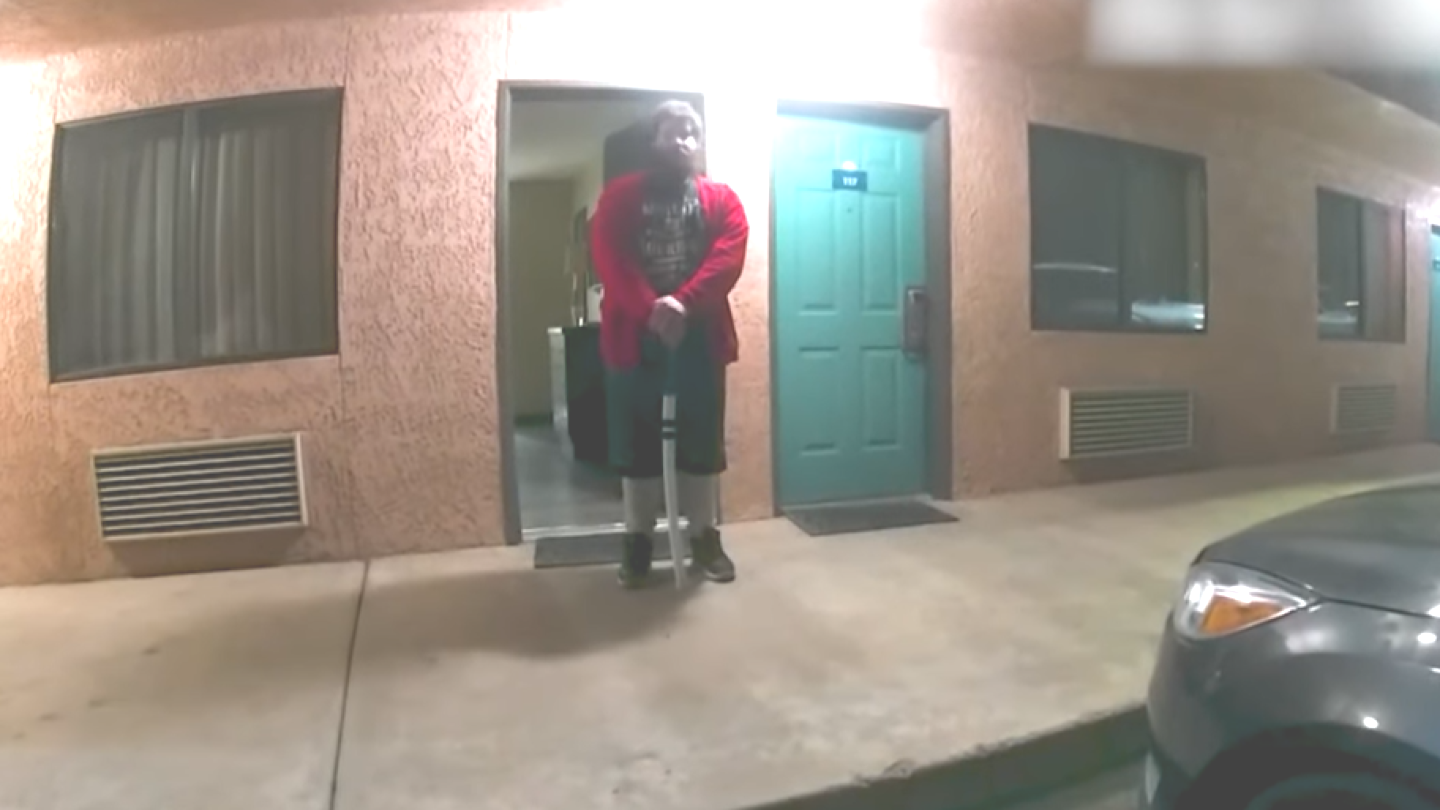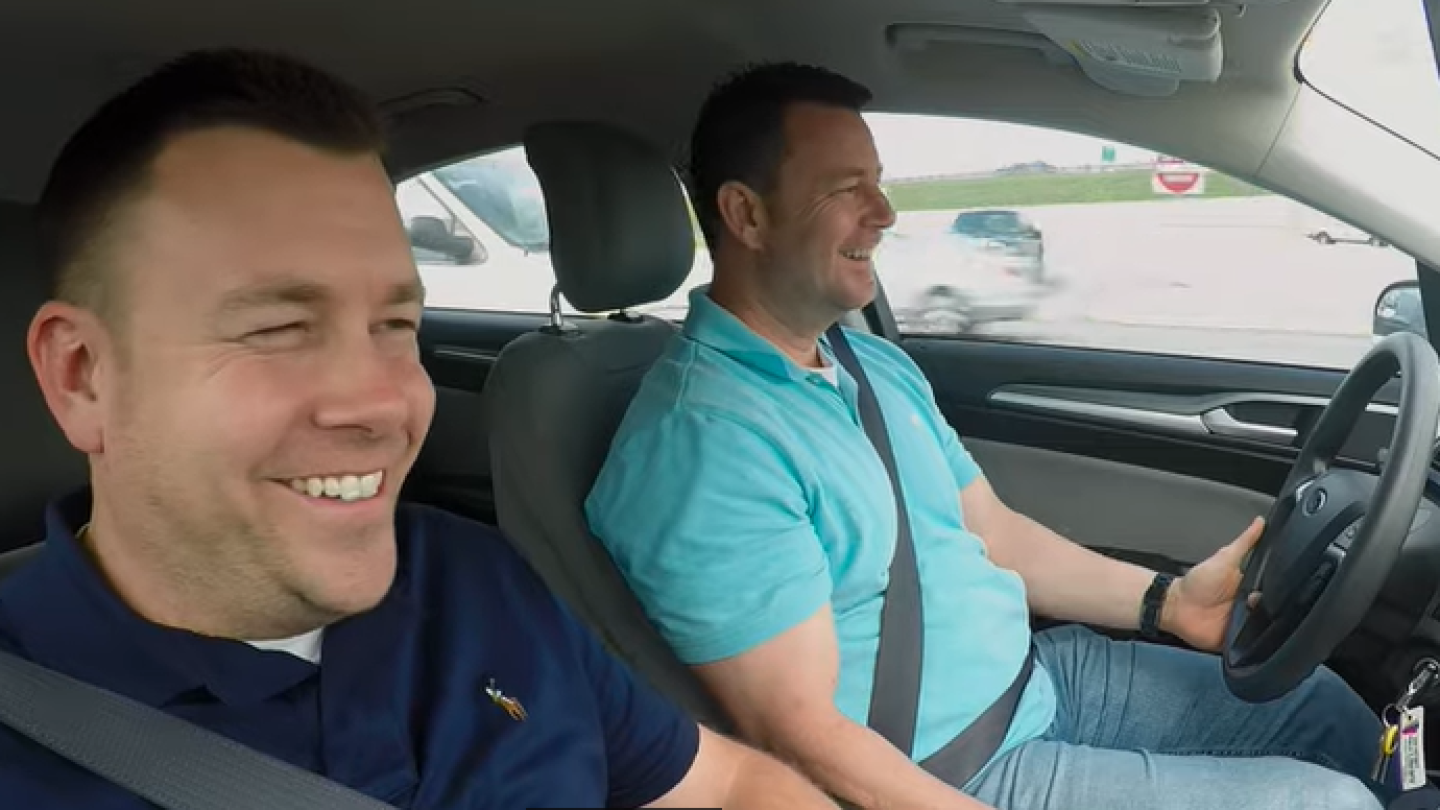De-escalation
Police1’s De-escalation topic page delivers training strategies, case studies and expert insights to help officers reduce use of force, build trust and improve safety in high-stress encounters. Access webinars, videos and articles on communication tactics, crisis intervention and scenario-based training designed for patrol, supervisors and chiefs. Stay current with evolving policies and proven practices that strengthen officer performance and community relations.
We cannot effectively de-escalate a situation if we cannot de-escalate ourselves
How an ancient tool inspired today’s non-lethal, non-contact restraint BolaWrap
Amid the threat posed by a man armed with a Katana, officers demonstrate exceptional de-escalation skills
The cop-crafted scenarios and varied outcomes offered by VirTra help officers practice making decisions in real time to develop more effective de-escalation tactics
The film follows two Texas police officers in their quest to improve outcomes for mental crisis calls
Research indicates that rural locations have higher rates of mental illness, opiate addiction and suicide than urban areas
Researchers are investigating the full spectrum of injuries that officers sustain while interacting, arresting, detaining, or pursuing suspects
New project will identify effective conflict resolution strategies through video footage review of police encounters
A comprehensive program combines strategies used by law enforcement trainers, pro athletes, doctors and use of force experts
3 ways law enforcement agencies can manage high-risk vehicle events and rebuild trust with the community
We must ensure that police reform proposals reflect the latest human performance and decision-making research
The ICAT training program may well be the only model of de-escalation empirically shown to have a meaningful impact
A combination of factors enabled talking down an agitated subject in possession of two knives
Using some real-world incidents, we can identify four basic de-escalation principles that may be of immediate applicability in your agency
From mixed martial arts to sleep deprivation, here are some of the most popular Policing Matters podcasts of the year
When law enforcement practices become political fodder, both officers and civilians lose
The publication provides strategies for attaining safety and security while mitigating the potential for violent confrontations
When it comes to the use of force, officers are making decisions so incredibly complex and swift that it is impossible to know all of the intricacies in retrospect
Members of legislative bodies and civilian oversight boards should be urged to engage in some law enforcement training
The de-escalation tactics used by the officers saved the 69-year-old’s life, said Bridgewater Police Chief Christopher Delmonte
Community collaborations provide access to many innovative programs such as peer specialists and mental health urgent care facilities
‘The magnitude of societal issues has far exceeded what law enforcement and mental health providers can effectively address alone.’
Offerings range from peer intervention virtual reality training to a transformed 911 experience
Once seen as the purview of gamers, the capabilities of virtual reality tech have increased while the price has decreased
A lot can go down when backup is two hours away
After implementing new de-escalation strategies, use of force incidents fell by nearly half in Volusia County
De-escalation training is more important than ever for law enforcement, and grants can help your department add an interactive, scenario-based approach
Officers will be required to document their attempts to de-escalate a situation in all incidents, whether or not they end with force being used
A new program from VirTra teaches officers how to recognize mental health challenges and how to respond appropriately
Massachusetts’ governor is pushing a plan to give bonuses up to $5K to officers who complete “advanced” training in such areas as de-escalation and bias-free policing
We must address some critical issues of grave importance to the survival of our honorable profession
The video will be used as a training tool to show officers how not to detain a suspect
Tactical decisions, including the decision to use force, require a quick calculation of the risk of action against the risk of delay






























